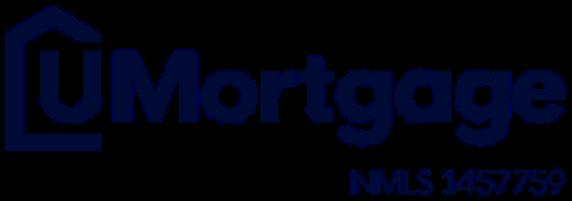






Thank you for allowing us the opportunity to represent you in your new home purchase. We are looking forward to serving you in the coming weeks. We will make your home buying experience smooth and enjoyable. We are devoted to using our expertise and the full resources of our team to achieve these results!
Buying a home is one of the largest financial decisions you may ever make and therefore, it is important that you are working with sound real estate and financial professionals. You may only buy a home 2-3 times in your lifetime, but we manage the buying process every single day! Our #1 focus is to serve you vigilantly as your agents, negotiators, and overseers of all transactional details to ensure that you achieve nothing less than an exceptional home buying experience. Together, we are confident we can transition you smoothly throughout the buying process!
Enclosed, you will find our contact information, so please do not hesitate to call or email either of us at any time.

Respectfully,
Dan Lourenco
Buying or selling a home is one of life's major events, both financially and personally. That's why choosing the right mortgage broker -one that's strong and dedicated to the needs of its customers -- is the key to a successful transaction. That's where I can make a significant difference as your Loan Office with UMortgage.
Not only do I have the knowledge to help you find the right loan for your home financing needs, but -- and this may be the most important criteria of all -- I will always put your needs first.
I pride myself on exceeding my customer's expectations at every stage of the process, from a complicated pre-approval through an on-time closing. With UMortgage being a #1 mortgage broker, I have access to some of
the best loan programs in the country and an experienced support team beside. me that is focused solely on making your home financing experience a pleasant one.
I'm dedicated to making sure your mortgage will be processed and closed with minimal stress. One of my main goals is to build long term relationships based on excellent service and mutual trust so that I will be your lender whenever you look for a new home.
As I guide you though each phase of the loan process, I'll answer your questions in detail, and explain the mortgage option I've recommended to you. Since UMortgage utilizes a standardized processing and underwriting procedures, I'll be able to provide you with accurate updates regarding your loan's status along the way.
You can have piece of mind knowing that I will focus on helping you meet your immediate and long-term home financing needs. My first priority is my customers, and I also do what is in their best interest. I've built a reputation of honesty, integrity, and professionalism, with a commitment to serving my borrowers.
On behalf of UMortgage, I would like to sincerely thank you for giving us the opportunity to guide you through the loan process. It is greatly appreciated.

Loan application is completed and all pre-approval checklist items are complete

We order your credit report and gather documentation needed
Pre-approval is issued to behin looking at homes with a real estate agent
Work with your real estate agent to find your dream home, then put in an offer. After the offer is accepted, you closing date is set
I meet with you and determine loan structure based on your financial needs
Appraisal, title report and insurance are ordered and other neccessary documents collected
Complete file is submitted to underwriting for intital loan approval
Initial approval is issued -- any conditions are collected and satisfied
File is submitted for final approval. Final approval is issued and loan is clear to close
Closing documents are sent to escrow. Copy of the final settlement statement is sent to you for review
Congratulations! You go to closing and become the owner of a new home!
We stay in touch and our "Client for Life" Philosophy begins!
I look forward to working with you on the sale of your home. I wnt to take a minute to explain our team structure and my value proposition. When we have exceeded your expectations, please feel free to tell your family, friends and colleagues about us!
Mortgage ProfessionalYour Mortgage professional is prepared to act as your primary guide throughout the mortgage process. They will provide you with detailed information so you can determine the loan that best fits your needs and will coordinate all your loan paperwork.
Typically, Mortgage professionals are responsible for:
•
Assembling all required paperwork for loan prequalifcation. This is the process of providing financial and other information (such as employment history) by a prospective borrower in order for the lender to determine the loan amount the borrower may qualify for to purchase a home.
Preparing pre qualification letters for you, which will show sellers how much you could qualify for a home loan and potentially provide you when an advantage if competing with other interested buyers who are not prequalified.
Gathering your income, expenses, assets and obtaining a copy of your credit report. It helps a lender determine whether or not a potential borrower is a good business risk.
Sending your information to a loan underwriter for review.
Providing qualified borrowers with a loan offer and loan disclosures.
Information given to consumers about their loans that explain loan fees, terms, and conditions.

Working with title companies to schedule closing your loan.
Attending the loan closing. This is the time and place at which documents for your loan are signed, dated, and notarized.
Keep you informed throughout the process and ensuring you fully understand your mortgage.
Your real estate professional will help you find properies for sale that fit your budget and you needs. Your real estate professional may also:
Write up your purchase offer and present it to the seller or seller's real estate professional.
Guide you through negotiations with the seller and accompany you to the closing.
Work with your lender to get them information they need about the home you've contracted to purchase.
Help you understand the market you're looking in and provide comparable homes to review.

Sometimes also referred to as the "listing agent," the seller's real estate professional will work with your agent on the real estate offer, negotiations, and loan closing.
Loan processors work along side loan officers and or underwriters in order to process mortgage paperwork.
Your Real Estate Professional The Seller's Real Estate Professional Loan Processor
They essentially act like an assistant to the loan officer or underwriter in making sure all the required paperwork is completed and time frames met during the loan transaction. They will work hand and hand with borrowers in facilitating paperwork to and from the lender to try and get the morgage loan approved.
One of the main tasks is to get the potential borrowers file prepared and ready to be sent to the underwriter. They must make sure that the customer's file meets the lenders guidelines with all required documentation. All information must be stacked in a certain order and all numbers calculate dmust be double checked to make sure that no mistakes are found.
They are also required to do a complete background check on the borrowers credit report to see all of the debts they have acquired and how likely they are to pay the mortgage.
The underwriter is the person who decides whether or not their lending organization will approve your application for a home loan. They make this decision based on the information they receive from your loan application and supporting documentation, including the home appraisal.
Typical, your mortgage professinal will communicate with the underwriter on your behalf. Unless you experience unusual circumstances, it's unlikely that oyu will be asked to contact the underwriter directly.
An inspection is sometimes required by the lender to help determine the condition of a property. A third party conducts the inspection, which includes all major appliances and structural elements.
Underwriter Inspector
The appraiser provides a professional estimate of the fair market value of the property. The appraiser inspects the property for value, potential repairs, and reviews comparable sales information.
The title company researches the title on the property. Before making a loan, a lender will usually require a title search for a title report to make sure the borrower will legally own the real estate. Based on the results, they will create a Title Report.
This report lists current owners of the property and any unpaid debts or liens filed against the property.
Real Estate transactions require a tremendous amount of technical experience and skill to handle smoothly. Wisely, you have chosen a knowledgeable real estate and loan professional to assist you in the purchase of your new home. Upon acceptance of your offer to purchase, a title company is typically chosen by the seller to properly close the transaction.
The involvement of an impartial third party, the title company, in a real estate transaction maintains security and accountability of monies owed and owing. The title company collects legal documents and funds on behalf of a buyer and seller, and distributes them according to the buyer's and seller's instructions.
A title professional's goal is to ensure a smooth, trouble-free sale; therefore, people buying and selling real estate often open title for their protection and convenience. All parties (buyer, seller, and lender) rely on the title company to carry out their mutually agreed upon instructions relating to the instructions are not mutually consistent or cannot be carried out.
A title company processes and coordinates the flow of documents and funds keeping all parties informed. This allows both the buyer and seller to move forward separately but simultanesously in providing inspections, reports, loan commitments and funds, deeds and many other items, using the title company as the central depostiting point. If the instructions from all parties to a title company are clearly drafted, fully detailed and mutually consistent, the title company can take many actions on their behald without further consultation. This saves time and facilitates the closing of the transaction.
When all terms and conditions of the instructions of all parties have been met, and all closing conditions have been satisfied, the deal is closed and the safe and accurate transfer of property and money has been accomplished.
Every transaction is uniqye and many can be complex. Always consult you title offer, if you would like a detailed explanation about the process.

Here is a list of helpful tips to ensure an effortless loan approval process. These DO's and DON'Ts will help any delays with your loan approval.
If we encounter a special situation, it is best to mention it to us right away so we can help you determine the best way to achieve your financial goals.
Continue making your mortgage or rent payments
Stay current on all existing accounts (even if you are paying them off)
Keep working at your same employer
Keep you same insurance company
Contine living at your current residence
Continue to use your credit cards as normal
Call us if you have any questions
Make a major purchase (car, truck, van, boat, jewelry, etc.)
Apply for a new credit card (even if you seem pre-approved)
Open a new credit card
Transfer any balances from one account to another

Pay off charges without a discussion with us first
Pay off collections without a discussion with us first
Buy any furntire
Close any credit card accounts
Change bank accounts
Max out or over charge on your credit card accounts
Consolidate your debt into 1 or 2 credit accounts
Take out a new loan
Start any home improvement projects
Finance any elective medical procedure
Open a new cell phone account
Join a fitness club
Pay off anything without discussin it with us first
ACCEPTANCE ADJUSTABLE RATE
MORTGAGE AMORTIZED LOAN
A.P.R. (ANNUAL PERCENTAGE RATE)
APPRAISAL
CLOSING STATEMENT (HUD1)
The date when both parties, seller and buyer, have agreed to and completed signing and/or initialing the contract.
A mortgage that permits the lender to adjust the mortgage's interest rate periodically on the basis of changes in a specified index. Interest rates may move up or down, as market conditions change.
A loan, which is paid in equal insallments during its term.
A term using in the Truth in Lending Act. It represents the relationship of the total finance charge (interest, discount points, origination fees, loan broker, commission, etc.) to the amount of the loan.
An estimate of real estate value, usually issued to standards of the FHA or VA. Recent comparable sales in the neighborhood is the most importance factor in determining value. This should be contrasted against the home inspection.
An increase in the value of a property due to changes in market conditions or other causes. The opposite of depreciation.
Document used to transfer title (ownership) of PERSONAL property.
A financial statement rendered to the buyer and seller at the time of transfer of ownership, giving an account of all funds received or expended.

COMPARABLE SALES
CONTRACT
DEED
DISCOUNT POINTS EASEMENT
ENCUMBRANCE
Any condition that affects the clear title to real property
Sales that have similar characteristics as the subject property and are used for analysis in the appraisal process.
An agreement to do or not to do a certain thing.
Written instrument, which when properly executed and delivered, convey's title to real property.

A loan fee charged by a lender of FHA, VA or conventional loans to increase the yield on the investment. One point = 1% of the loan amount.
The right of use the land of another.
Anything that burdens (limits) the fee title to property, such as a lien, easement, or restriction of any kind.
The value of real estate over and aobve the liens against it. It is obtained by subtracting the total liens from the value.
That portion of a mortgage's monthly payment held in trust by the lender to pay for taxes, hazard insurance, mortgage insurance, lease payments and other items as they become due.
FANNIE MAE
Nickname for Federal National Mortgage Corporation (FNMA), a tax-paying corporation created by congress to support the secondary mortgages insured by FHA or guaranteed by VA, as well as conventional home mortgages.
FEDERAL HOUSING ADMINISTRATION (FHA)
An agency of the U.S. Department of Housing and Urban Development (HUD). Its main acitivty is the insuring of residential mortgage loans made by private lenders. The FHA sets standards for construction and underwriting but does not lend money or plan or construct housing.
FHA INSURED MORTGAGE
FIXED RATE MORTGAGE
FORECLOSURE
FREDDIE MAC
A mortgage under which the Federal Housing Administration insures loans made, according to its regulations.
A loan that fixes the interest rate at a prescribed rate for the duration of the loan.
Procedure whereby property pledges as security for a debt is sold to pay the debt in the event of default
Nickname for Federal Home Loan Mortgage Corporation (FHLMC), a federally controlled and operated corporation to support the secondary mortgage market. It purchases and sells residential conventional home mortgages.
Any loan where the borrower pays a portion of the interest due each month during the first few years of the loan. The payment increases gradually during the first few years to the amount necessary to fully amortize the loan during its life.
INVESTOR
PURCHASE AGREEMENT

The holder of a mortgage or the permanent lender for whom the mortgage banker services the loan. Any person or institution that invests in mortgages.
Buyer makes a deposit for for future purchases of a property with the right to lease the property for the interim.
LOAN TO VALUE RATO (LTV) MORTGAGE
MORTGAGE INSURANCE PREMIUM (MIP)
MORTGAGER
ORIGINATION FEE
The ratio of the mortgage loan principal (amount borrowed) to the property's appraised value (selling price). Examlpe -on a $100,000 home, with a mortgage loan principal of $80,000 the loan to value ratio is 80%.
A legal document that pledges a property to the lender as security for payment of a debt.
The amount paid by a mortgager for mortgage insurance. This insurance protects the investor from possible loss in the event of a borrower's default on a loan.
The borrower of money or the giver of the mortgage document.
A written promise to pay a certain amount of money.
A fee charged by a lender on entering into a loan agreement to cover the cost of processing the loan.
A fee charged by a lender for the repayment of a loan prior to its contactual due date.

A written contract containing a promise to pay a definite amount of money at a definite future time.
REALTOR
SECOND MORTGAGE/ SECOND DEED OF TRUST/ JUNIOR MORTGAGE OR LIEN
A member of local and state real estate boards, which are affiliated with the National Association of Realtors (NAR).
An additional loan imposed on a property with a "first" mortgage.

The process by which a parcel of land is measure and its area ascertained.
An insurance policy which protects the insured (purchaser or lender against the loss arising from defects in the title).
Set aside the items that you may need immediately upon arrival at your new home. Pack all these items separately and mark the boxes by content.
Detergent Kitchen Cleanser
Dish Towels
Paper Towels
Dish Cloth
Steel Wool Pads
Sponge Glass Cleaner
Kitchen Supplies Bathroom
Plastic Wrap Trash Bags
Aluminium Foil Paper Plates, Cups, and Napkins
Plastic Knives, Forks, & Spoons
Plastic Pitcher Small Saucepan Serving Spoon Tea Kettle
Razor Facial Tissue
Toilet Tissue Bath Towel Shower Curtain Face Cloth Soap First-Aid Kit Aspirin
Children Miscellaneous Food
Video Color Books & Crayons
Favorite Toys Books Puzzles Blanket
Tool Box
Several Light Bulbs Flashlight Extra Batteries String or Twine Old Newspaper Laundry Detergent
Instant Coffee, Tea, & Chocolate
Raisins
Fruit
6 Pack of Pudding
Sandwich Spreads

Jars of Cheese
Package of Crackers
Instant Creamer, Sugar, & Salt
Dry Soup Mix
Box of Cereal
Give your landlord written notice 30 days before you plan to leave. This notice must be given 30 days before the next rent due (usually the first day of the month). Keep a copy for yourself. If you are on a year's lease and need to break the lease, contact the Tenant-Landlord Office in your area.
Tell your landlord in writing you would like to be present when your rental property is inspected (for damage) after you vacate. (The landlord has the right to set the date and time of inspections.)
When the landlord inspects for damage and cleanliness, ask if there are problems. To prevent deductions from your security deposit, you may want to correct the problems, if any, yourself. If so, you should tell the landlord exactly when the problem(s) will be corrected.
Clean your apartment, particularly the kitchen and its appliances and the bathroom. Remove all trash and personal belongings; sweep all bare floors, and vacuum carpets.
Return all keys to the apartment, mail box, storage and parking areas.
Within 30 days after you leave, your landlord must return your security deposit, plus any interest due under law, or send you an itemized statement indicating why part or all of the money was withheld.
The landlord may deduct for:
•
Physical damage you did to the property
Cleaning if the unit was left dirty
A second coat of paint, if you painted the walls a dark color or left them scarred or dirty
Unpaid rent

Other costs provided for in the lease
Make sure the landlord has your new address.

A substantial amount of money can be saved by packing your household goods. To insure safety for your belongings, care should be undertaken to pack properly.
Keep the following items handy for packing:
Boxes Marking Pens Bubble Wrap Newspaper and Tissue Tape and Scissors Tape Measure
Use strong containers in good condition that can be sealed with strapping tape. These can be purchased locally from moving companies.
Keep in mind what the box will weigh after it is loaded. 40 to 50 pounds is considered the maximum.
Empty spaces in boxes should be filled with crumpled newspaper or bubble wrap to keep things from shifting in transit.
Books should be stacked on end and generally in smaller boxes than other things due to their weight.
Label each box after packing, so that movers will know which room to put it in, if it is fragile and if it will be loaded last so it is unloaded first.
Remove all breakables from drawers before moving furnitures.
Don't pack valuables such as jewelry, collections, checks or savings books.
Packing takes longer than you expect so allow plenty of time.
Pack items that aren't frequently used first and unpack them last.
Organization in packing will save you hours of time and frustration in the long run. Items that are no longer wanted can be donated to charity and you may be eligible for a tax deduction.
Have all rugs and draperies cleaned and leave them in the wrapping for the move.
Pack one room at a time.
Heavy items on the bottom/light items on top.
One of the best tips for family moving is letting go and moving forward to your new life on a positive note. Taking leave rituals will help provide a sense of closure in your old home, which will make the transition easier for your kids when settling into the new home and new community. Here are some "saying farewell" ideas:
A few weeks before you move, hold an informal get-together for close friends and neighbors to say farewell.

As a family, make a point of visiting favorite restaurants and other special places one more time before you leave.
When everything's been packed away and the old house is empty, take a room-byroom "memory walk" with your children. Recall birthday parties in the dining room, holiday events in the living room, stories of brining the children home as babies -- the kinds of memories every family has. Take a last stroll around the outside too.
Compare how the house feels empty to how it felt with all your personal belongings there. Doing this, your children will get the idea that what really makes a home is the family and your personal things -- framed pictures, furniture, dishes, books, toys.
Welcome rituals can be anything that will have meaning for your children and you. Here are some ideas for your "new home welcome rituals:"
If the children are seeing the house for the first time, do a walk-through together to "meet" your new home before your things fill them rooms.
01 02
Make a positive goodbye to your old home and community.
Plan a family welcoming ritual for your new home.
Have everyone's "basic survival necessities" where you can find them immediately and easily in the new home.
•

Plant a tree or bush together outside as a symbol that this is your new home now. If it's wintertime, plant something in a pot inside that you can transplant in the spring.
Gather together to hang a family photograph or find the perfect spot for an object that is special to your family. If you've always had a fountain, bird feeder, or swing in the backyard, make a special event of putting the new one up in this home together
These "survival necessities" may be baby's "blankie," favorite pajamas for your toddler, essential music CD or comfy sweatshirt for your teen, and the coffee pot for you. Pack a suitcase of "must haves" for each family member -- belongings that would cause crankiness, crying, or raise blood pressure if they went missing for too long. Your first few days in your new home, especially that first night and morning, will be so much more pleasant for the family when everyone has the familiar stuff that makes them feel most comfortable
Re-establish regular family routines, such as mealtimes and bedtimes, right away.
When moving, there's a certain amount of disruption to regular schedules that you simply can't avoid. But once you've moved in, aim to get back on track with your normal family routines as quickly as possible. This will help younger children, in particular, who need routines and more consistency. This also send the important message to all
members that you are the same family, just in a new setting. The old rules, routines, and rituals still apply no matter where you are at.
You certainly didn't pack in a day, so don't try to unpack in one, either. Make setting up the children's bedrooms your first priority to help get them comfortable. Put the kitchen, bathroom(s), family room and other high-use living spaces at the top of the list. Don't obsess over decorating or hanging pictures right away. Take your time and enjoy getting to know your new home and the wonderful discoveries you and your kids will make about it.

Their new bedroom is truly their own space in the new home, so let your kids claim it. Of course, your children's age will depend on how much control they have. At the least, let them decide where their bed goes in the room. If there's a budget for new furnishing, let them select the new rug or bedspread, or allow them to select a few bedroom decorations of their own such as removable wall stickers.
Some kids have trouble sleeping in a new bedroom. It is unfamiliar to them and can make them feel anxious. Take the time to talk about how this bedroom is similar to the child's old room and also discuss how it's different. Pay special attention to bringing in furnishings and belongings that were in the old room, to encourage comfort.
Be sure to prioritize the unpacking process.
the children some say in setting up their new bedrooms.
your kids feel comfortable in their new bedrooms.
Help your family pets settle.
This is especially important for comfort and safety. You want your children to know as quickly as possible the boundaries of where they can go and where they can't go beyond. Taking walks or driving around together as a family is the best way to uncover the exciting surprises that await in the new neighborhood.
Because they are a part of the family, too. Moving is also a big change for your pets. Be sure to take the appropriate time to introduce your pets to their new surroundings and neighborhood. It's important they become familiar with their new food/water bowl placements, the yard, and sleeping spots.
Remember to "make new friends, but keep the old."
Play an active role in heling your children make new friends in your new community. However, do also support their need to hold onto their old friends. They will appreciate having you as their confidante for sharing their new experiences and discoveries.
•

With new colleagues from work or new families you meet, set up play dates for younger children to get to know each other.
Find activities for your school-age children to join, such as sports team, clubs, lessons and classes. Meeting children with the same interests as your child increases the odds of going beyond acquaintance to friend.
yourselves with the new neighborhood.

Take the initiative and introduce yourself to the neighbors. Your children's first new friends may literally be living next door. A meet-and-greet can help you get those new friendships get underway.
Staying in touch with old friends:

•
Try Zoom calls and fun ways to stay connected.
•
Make plans for an upcoming visit with old friends -- whether in the new neighborhood or the old.